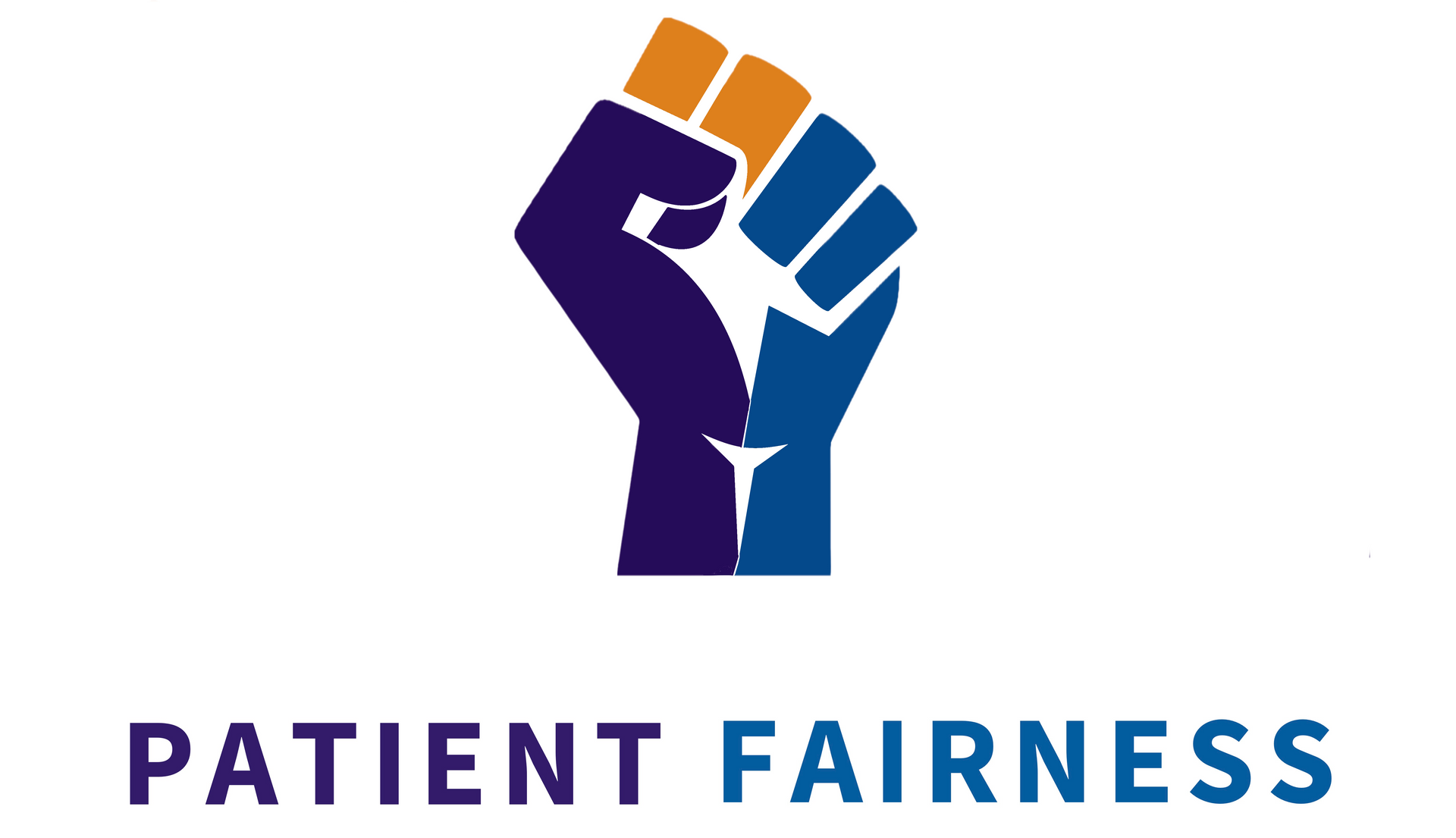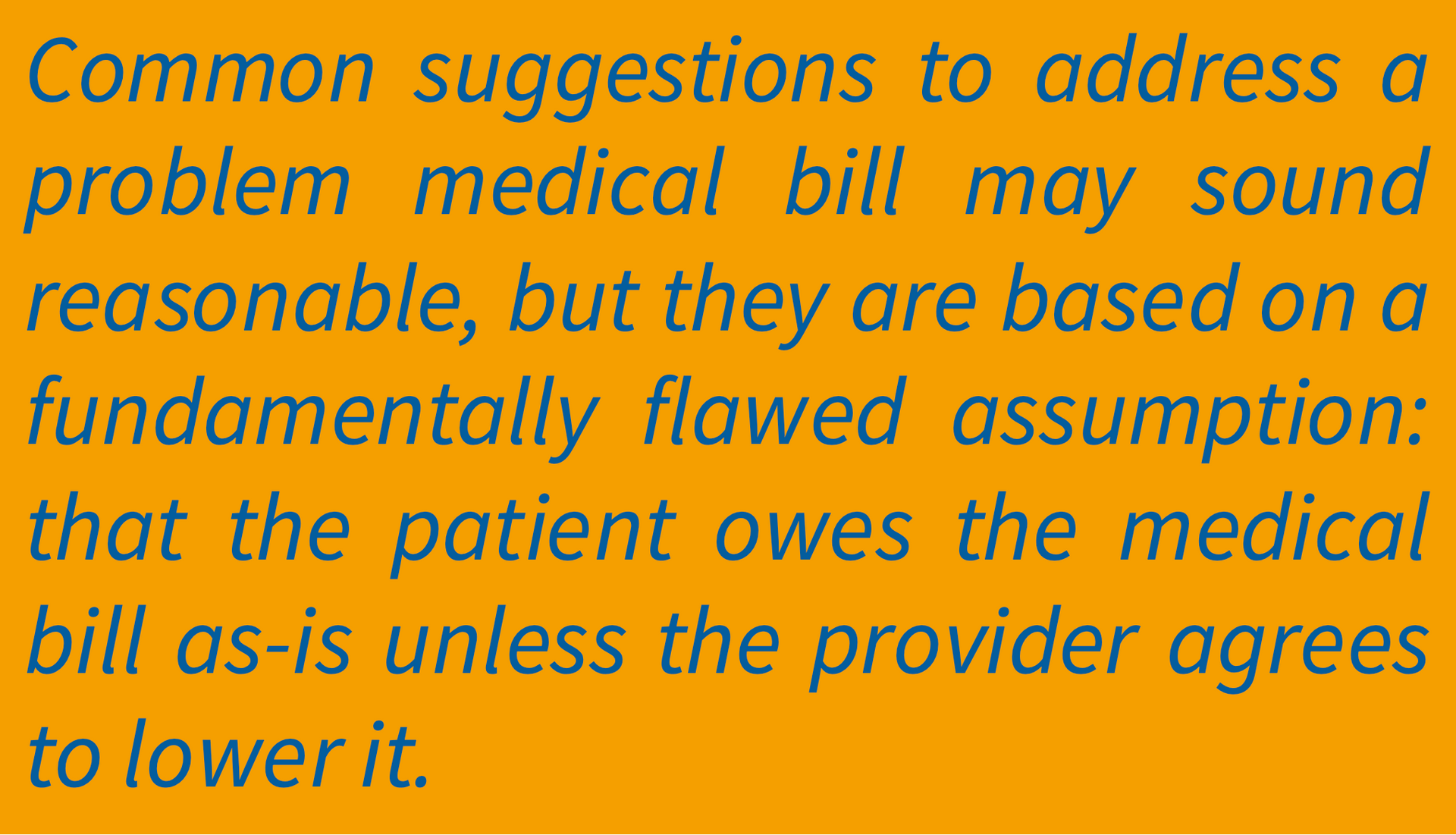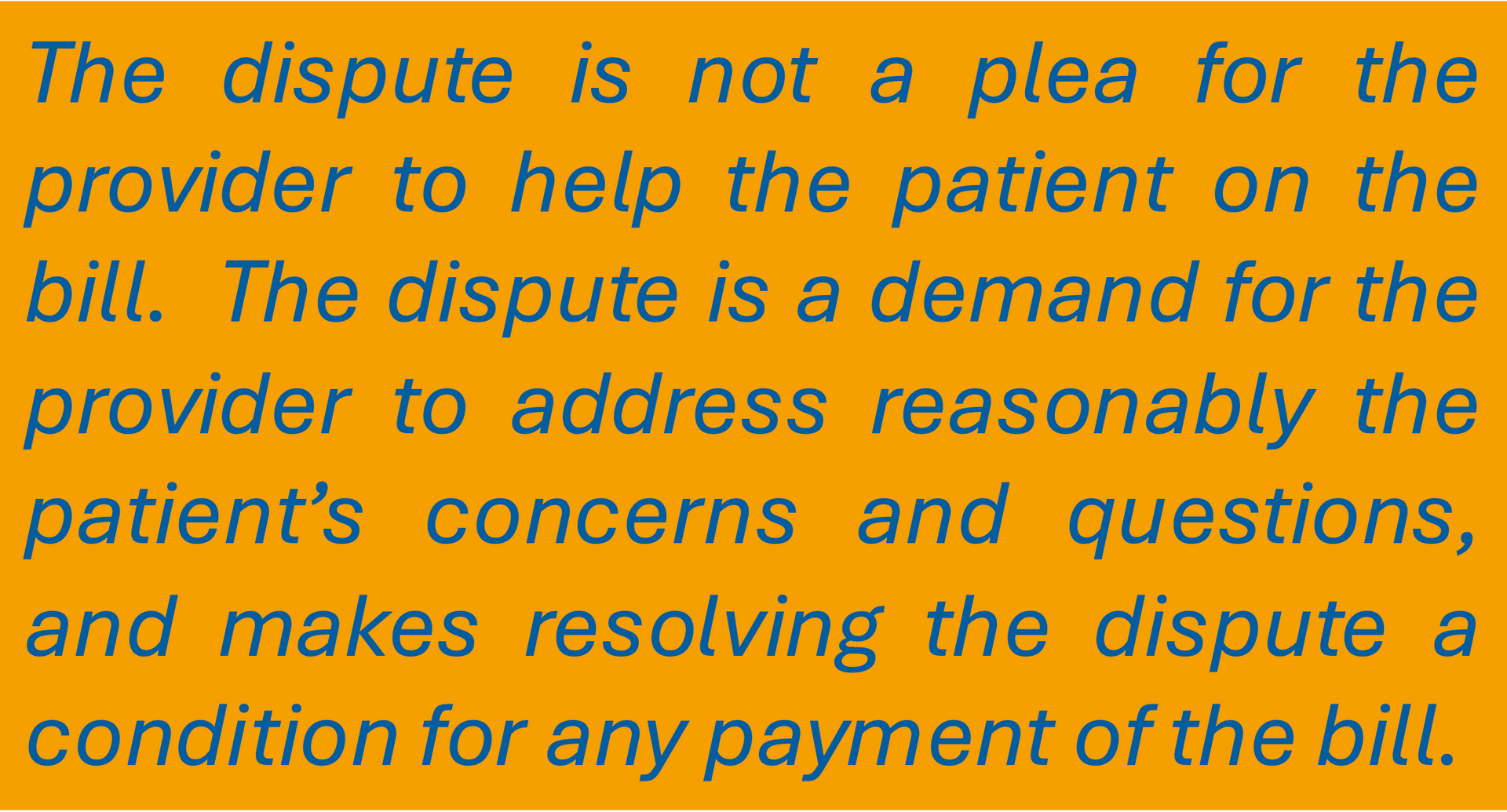An estimated 55 million Americans receive a problem medical bill annually, so it is not surprising that there is no shortage of advice for patients receiving problem medical bills. A January article in Time, “How to Negotiate Your Medical Bills”, is a good example of typical advice. Its suggestions include asking the provider about financial assistance and payment plans or discounts, and advises that “the way you’re not going to win [against a problem medical bill] is having someone who’s screaming, because you’re trying to convince another person to help you.” Although I also don’t suggest screaming at a provider, the article is an excellent example of how conventional wisdom is misguided regarding addressing a medical bill that one thinks is unfair, illegal, or that he or she may not owe. When a patient confronts such a medical bill, the patient should not be “trying to convince [the provider] to help,” but disputing to the provider that he or she owes the bill.
Common suggestions to address a problem medical bill may sound reasonable, but they are based on a fundamentally flawed assumption: that the patient owes the medical bill as-is unless the provider agrees to lower it. That may be true if the patient and provider had clearly agreed to the payment terms reflected in the medical bill, and there are no legal or other reasons for the bill to be invalid. But with most problem medical bills, the bill is not consistent with a prior understanding between the patient and provider, or the patient has a concern about the fairness or legality of the bill. In these common situations the patient should not assume that the provider must agree to lower the bill, and that otherwise the patient owes the medical bill as-is. In other words, do not assume that it is the provider’s sole discretion whether to adjust a medical bill if the patient has legitimate concerns about the bill. Under such an assumption, the patient is putting all the power in the hands of the provider, and is asking the provider for a favor to get any relief. Giving all the decision making to the other party, and then asking that party for leniency, is usually not a good way to stick up for one’s interests in a dispute.




